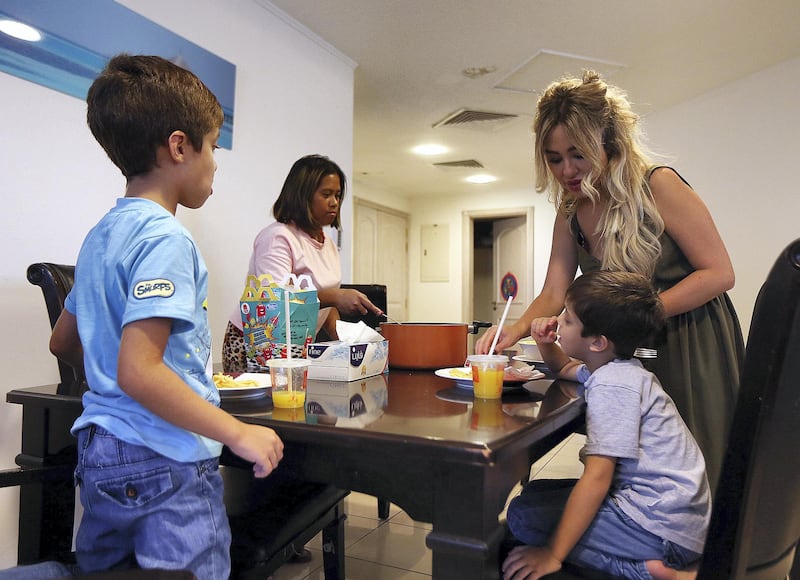Housemaids are often considered a member of the family, one who many are unable to imagine living without. Yet they are rarely given the training needed to respond to emergencies.
A new initiative by the City Safe Consulting and Training Centre and Umm Al Quwain Civil Defence is putting the spotlight on the importance of safety training for domestic workers, who are often the front line of defence in a crisis.
Maher Qandil, managing director of the centre, said many incidents in the home could be handled better if domestic workers were trained on how to act in an emergency.
"Many parents leave their children with nannies, and being equipped with information on how to deal with, for example, a stove that has caught fire or to be able to save a choking child is very important and can save lives if done properly," he said.
The initiative’s goal is to provide 1,000 Umm Al Quwain domestic workers with free first-aid and fire-safety training.
"It's going to be a three-hour course that covers all the first-aid and fire-safety aspects and it will be provided in three languages: Arabic, English and Urdu," Mr Qandil said.
Raida Salem knows first-hand how vital this training is. The Jordanian mother of five, 40, said that seven years ago she hired an Ethiopian housemaid who did not know how to use a gas stove.
“She came from a village where they don’t have stoves. It was her first job and she didn’t know anything about safety,” Ms Salem said.
“I noticed a strange smell coming from the kitchen and when I checked I found that gas was leaking from the stove while she was cleaning. I’m lucky I was there at the right time and that I managed to control the situation.
“Attending training would help prevent incidents like this from happening and if it did happen, the maid would know how to act.”
____________
Read more:
Domestic workers, far from home, must be protected
The discriminating job advert got me thinking
From domestic helper to stand-up comic: meet Deepika Mhatre
____________
Mayssa Houri, a Lebanese mother of two, said knowing that her housemaid would be able to act effectively in an emergency would put her mind at ease.
“I work long hours and my kids are always with the housemaid – she spends more time with them than I do.
“We should make sure she knows how to deal with any situation, but I am worried because I’m not quite sure she does,” said Ms Houri, 27.
Her Filipino housemaid, Mary Ann, joined the family seven years ago and has not received training.
“We hired her when my first son was born and we can’t imagine life without her – she is a member of the family and a very important one. We are like many other families who need help and it’s important that the helpers know the basics of first aid and fire control,” she said.
Safety training is not mandatory, however, and Annie Browne, chief executive of HSS Health and Safety Solutions in Dubai, said most domestic helpers come from countries where it is not available to them.
“This can cause concern for the family and also put pressure on the worker, who often feels inadequate,” she said.
She said the overwhelming majority of maids, nannies and other domestic helpers she came across in Dubai did not know the phone number for the emergency services.
"Most also do not know how to swim, even though they are left in charge of children at swimming pools and in villas with a pool," Ms Brown said.
The institution provides a course for maids and nannies called Back to Basics, which includes first-aid and home-safety training.
“Having the knowledge and competence to perform effective first aid can prevent a disaster … having fire-safety knowledge and knowing what to do if a fire breaks out in the home could prevent a catastrophe,” she said.
First-aid training should be made mandatory for domestic workers, she said.






